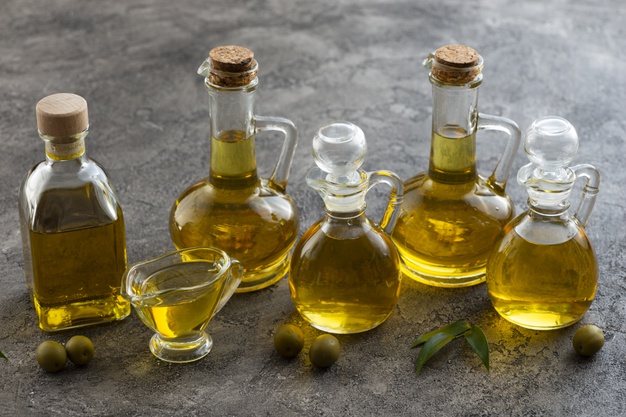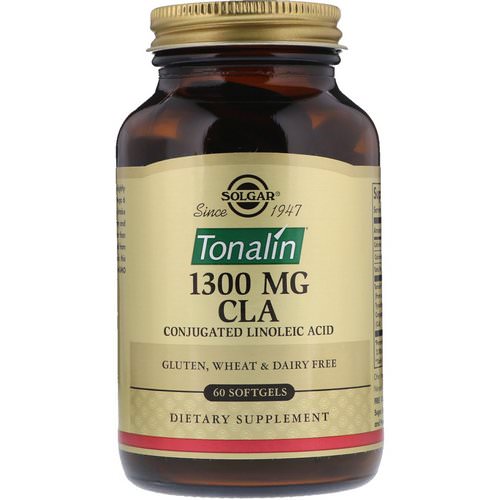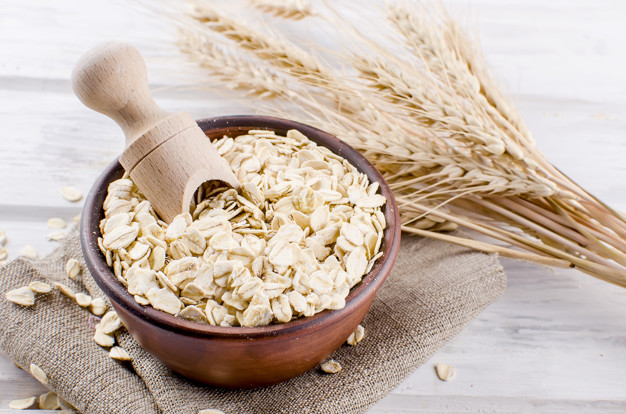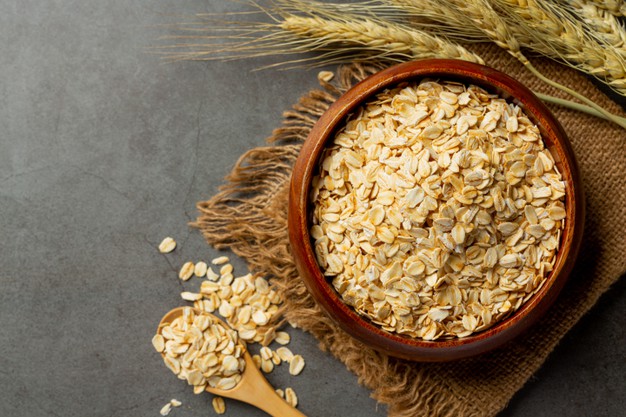Oleic acid is a monounsaturated fatty acid that offers numerous health benefits. It is very popular for its lipid lowering activity and cardio protective activity.
Chemistry
- The name oleic acid is derived from a latin word ‘oleum’, which means oil
- It contains single double bond (at 9 carbon) in its structure
- It is also known as omega 9 fatty acid
- It is a fatty acid of eighteen carbon chain
- It has the general formula of C18H34O2
- It is colourless though its commercial supplemented forms have slight yellow colour
- It is odourless as well
- It is insoluble in water
Sources
As it is a non essential fatty acid thus body can synthesize it therefore its deficiency does not easily occurred in body if it is not consumed by diet, whereas it is also available in natural food stuffs as well as in supplemented forms.
Foods which are rich in oleic acid are listed below –
- Edible oil like olive oil, coconut oil, rice bran oil, almond oil, rapeseed oil, sesame oil, peanut oil and sunflower oil
- Pork
- Beef
- Chicken
- Nuts
- Cheese
- Eggs
-
 Sunflower seed
Sunflower seed - Avocado
- Milk

Mechanism of action
It mainly functions in body by changing the composition of cell membrane and by altering the receptors present in cell membrane. It exerts the following effects in body –
- It is associated with blocking the transport of cholesterol in intestine (especially in small intestine) by decreasing the synthesis of cholesterol receptors
- It also helps to reduce inflammation by stimulating the activation immune cells especially neutrophils that help to identify inflammation
- It is also related with increasing the synthesis of proteins, which helps to promote the functions of healthy blood vessels thus decreases the prevalence of vascular diseases
- Presence of oleic acid in cell membranes decreases free radical induced oxidative damages of cell membrane thus significantly reduces the risk of developing chronic diseases
- It also acts as an important building block of nervous system as it is associated with forming myelin that helps to improve signal transduction, nervous growth as well as repair
Health benefits
Anti-carcinogenic effect
- It helps to protect the body from carcinogens and reduces the prevalence of carcinoma
- Consumption of monounsaturated fatty acid especially oleic acid is very effective for hindering the growth of cancerous cells and tumor cells
- It has seen that oleic acid plays significant role in suppressing the over expression of an oncogene named HER2 that helps to prevent metastasis
- It especially helps to decrease the prevalence of lung cancer and breast cancer

Role on cardiac health
- Monounsaturated fatty acid plays vital role in promoting cardiac health and also decreases the risk of developing cardio vascular diseases and being a monounsaturated fatty acid, oleic acid is not an exception
- It significantly promotes cardiac functionality
- It helps to protect the heart from oxidative and inflammatory damages thus reduces cardiac morbidity rate
- It is also associated with decreasing the concentration of bad cholesterol (LDL) in blood. It decreases the level of triglyceride and VLDL as well. This lipid lowering activity of oleic acid is responsible for preventing fat deposition in blood vessels thus inhibits the hardening of blood vessels, which ultimately reduces the prevalence of atherosclerosis and coronary artery disease
- On a contrary it has seen that consumption of oleic acid significantly improves the concentration of HDL in body that exerts potent cardio protective effects
- As mentioned above, it decreases fat deposition within blood vessels thus it prevents hardening of blood vessels and this feature is directly associated with improving endothelial functions that ultimately reduces the susceptibility of developing vascular diseases as well as hypertension
- It has seen that it plays vital role in regulating the synthesis of nitric oxide in body, which also helps to reduces high blood pressure
- Its consumption is very effective for decreasing the prevalence of heart attacks or strokes


Hypoglycemic effect
- It helps to decrease blood sugar concentration thus diabetic patients can easily include it in their diets
- It is related with increasing the sensitivity of insulin that helps to reduce free glucose concentration in blood as it helps to transfer glucose from blood to liver where it stores glucose as glycogen for future purpose
- It significantly decreases the level of fasting blood sugar as well as the level of HbA1c
- It has also seen that consumption of oleic acid is very beneficial for improving the metabolic control of obes patients with type 2 diabetes mellitus
Role on mental health
- Oleic acid plays imperative role in promoting mental health
- It is closely related with preventing depression
- It also helps to improve mood
- It has seen that individuals who consume oleic acid are reported less anger than others
- It also helps to improve the symptoms of attention deficit hyperactive disorders (ADHD)
- It is related with improving brain plasticity thus helps to improve brain functionality
- It has seen that individuals with normal level of oleic acid in blood have extrovert personality

Role on skin
- Consumption of oleic acid is very helpful for promoting skin health
- It has seen that monounsaturated fatty acid plays significant role in strengthening the structure of skin’s layer
- It helps to make the skin hydrated
- It helps to moisturize the skin as well
- It helps to protect the skin from the harmful effects of UV ray and reduces the prevalence of pigmentation and sunburns
- It helps to prevent ageing also
Role on skeletal health
- It plays significant role in preventing bones disorders and joint swelling as monounsaturated fatty acid exerts potent anti-inflammatory activities thus consumption of foods containing oleic acid is very beneficial for reducing inflammation
- It helps to prevent pain as well
- It also helps to improve the strength of bones
- Post menopausal women and middle aged adults must include oleic acid in their diet as it is associated with increasing the synthesis of bone building cells and prevents bone loss
- Individual suffer from arthritis especially rheumatoid arthritis should include oleic acid in their diet for improving their symptoms rapidly
Other health benefits
- It has seen that consumption of oleic acid significantly reduces abdominal fat percentage
- It helps to prevent dumping syndrome as well
- It also helps to reduce the prevalence of ulcerative colitis
- It plays significant role in preventing adrenoleukodystrophy, which is a severe disease of adrenal gland and brain
- It helps to prevent fat deposition in hepatic cells thus decreases the risk of developing fatty liver disease

General consideration of using oleic acid
- It can be consumed as cooking oil. Individual who suffer from heart disease or hypercholesterolemia should use those cooking oils, which contain oleic acid
- It has seen that consumption of olive oil significantly fulfill the requirements of oleic acid
- Mediterranean diet also provides adequate amount of oleic acid
Recent findings
- According to recent researches it has seen that substitution of saturated fat with oleic acid significantly reduces the prevalence of cardiac disorders by decreasing the concentration of blood lipid especially LDL cholesterol level and triglyceride level (Lopez-Huertas E, 2010)
- Current researches have shown that individual who consumes oleic acid (about 20g) as cooking oil significantly reduces the risk of developing coronary artery diseases (Voelker R, 2019)
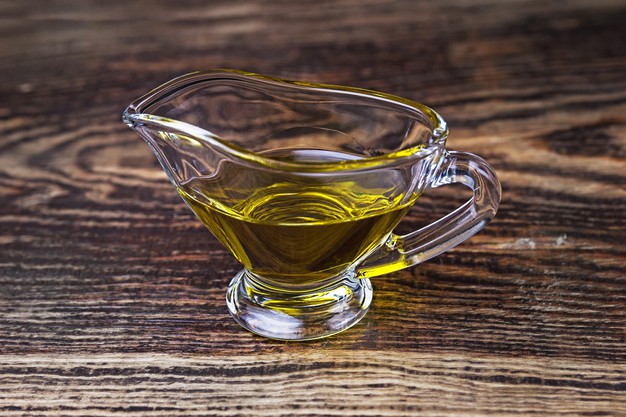
Source:
Arsic, A., Stojanovic, A. and Mikic, M., 2019. Oleic acid-health benefits and status in plasma phospholipids in the Serbian population. Serbian Journal of Experimental and Clinical Research, 20(2), pp.3-8.
Bowen, K.J., Kris-Etherton, P.M., West, S.G., Fleming, J.A., Connelly, P.W., Lamarche, B., Couture, P., Jenkins, D.J., Taylor, C.G., Zahradka, P. and Hammad, S.S., 2019. Diets enriched with conventional or high-oleic acid canola oils lower atherogenic lipids and lipoproteins compared to a diet with a western fatty acid profile in adults with central adiposity. The Journal of nutrition, 149(3), pp.471-478.
Granado-Casas, M. and Mauricio, D., 2019. Oleic acid in the diet and what it does: implications for diabetes and its complications. In Bioactive Food as Dietary Interventions for Diabetes (pp. 211-229). Academic Press.
Lopez-Huertas, E., 2010. Health effects of oleic acid and long chain omega-3 fatty acids (EPA and DHA) enriched milks. A review of intervention studies. Pharmacological research, 61(3), pp.200-207.
Sales-Campos, H., Reis de Souza, P., Crema Peghini, B., Santana da Silva, J. and Ribeiro Cardoso, C., 2013. An overview of the modulatory effects of oleic acid in health and disease. Mini reviews in medicinal chemistry, 13(2), pp.201-210.
Voelker, R., 2019. Oleic acid can make heart claim without hard evidence. Jama, 321(1), pp.23-23.
